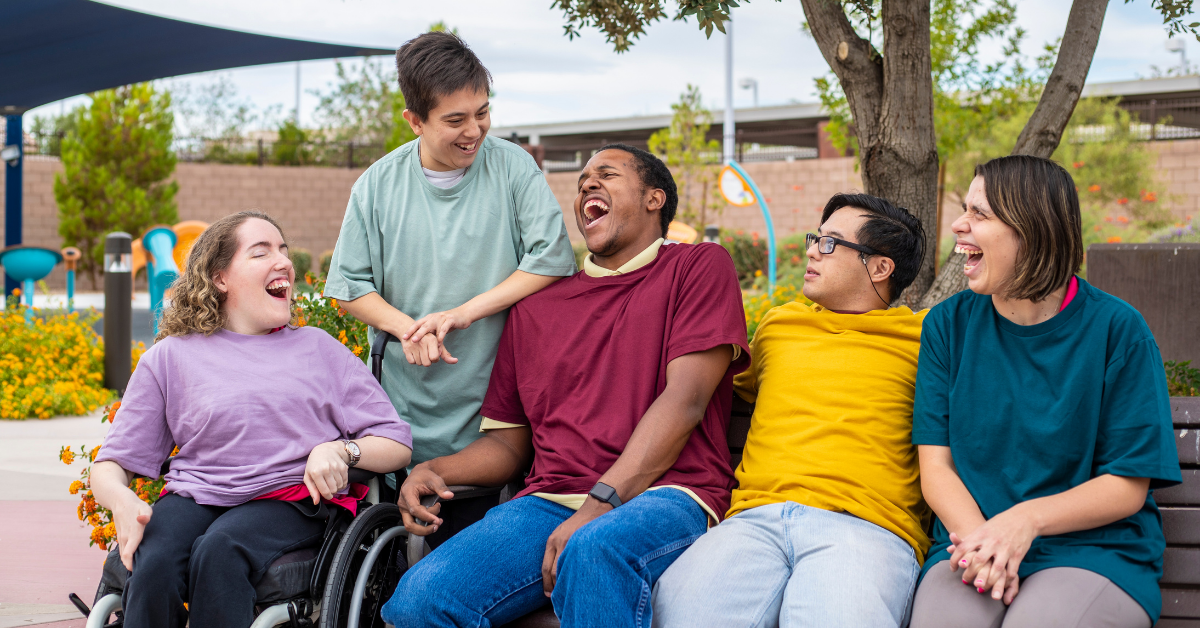Too often when non-disabled people talk about ways to include disabled people in church, it’s about how we can help them. Ugh! Being helpful is not bad—we all need help now and again. But, often this particular conversation completely ignores the breadth and depth of God-given gifts present in disabled people. Often, this conversation assumes people with disabilities can only be objects of ministry and are not ministers themselves. I wonder how we all would experience God in new ways if we assumed that disabled people are already ministers. Period.
The category of disability includes a huge diversity of people and situations that require different approaches in different contexts. Here are a few general guidelines to keep in mind so you can identify and then welcome the gifts of disabled people in your midst.
Ask Questions and Pay Attention
Newsflash: the best way to discover the gifts a person has (disabled or not) is to get to know them. Ask questions. Find out where their passions lie and how much time they have to share. Work to build a relationship founded on trust, love, and authenticity.
Create intentional spaces to talk and dream together. If someone communicates best without using words, pay attention to the kinds of activities they gravitate toward. Invite their participation, and notice all the communication that happens nonverbally—through body language, energy level, facial expression, and in all kinds of other ways.
Prioritize People Over Structures
It’s natural for church leaders to recognize the many tasks their community is responsible for, and look for people with the gifts to fill those roles and meet those needs. To be truly open to how the Spirit is moving among us, though, it can be helpful to look first at the gifts present within the community. Someone in your community may have strong leadership gifts but frequent in-person meetings wouldn’t work for them. Another person may have incredible gifts for dance or letter writing or storytelling, but those don’t fit into any of the existing needs.
Rather than deciding someone doesn’t have something to offer because their skills don’t align with the tasks that currently exist, be creative, and work together to generate new opportunities and maybe even new ministries. Sometimes a task or position imagined for one person might be shared by two or more people—inviting people to work together and share the responsibilities based on schedule, energy levels, and areas of interest or expertise. Flexibility, adaptability, and creativity create new opportunities and bring new life and ministry possibilities.
Accessibility is Fundamental
None of the other ideas matter if our physical spaces are not accessible to the wide range of bodies and brains God has created.
- Make sure all of your spaces are wheelchair accessible—including doorways, bathrooms, and all the levels of your building.
- Learn about people’s comfort levels with stillness, focus, sound, and movement. Create spaces that welcome and celebrate differences.
- Invite people from your congregation living with disabilities to be a part of making things accessible! Consider compensating them for their time. They’re the experts here.
It Benefits the Whole Community
Anything a community does to cultivate new pathways for participation, communication, leadership, and contribution is going to benefit the whole community. Greater accessibility benefits everyone. It will introduce gifts that had been previously unnoticed—of both disabled and nondisabled community members—and ultimately, will make the church a more faithful expression of the wide love of God who inhabits and moves through the beautiful diversity of bodies and brains.
Further Exploration
While a community’s disabled members are the experts on accessibility in their context, sometimes an accessibility checklist is helpful to get the conversation started! Here are a few to get some ideas flowing:



